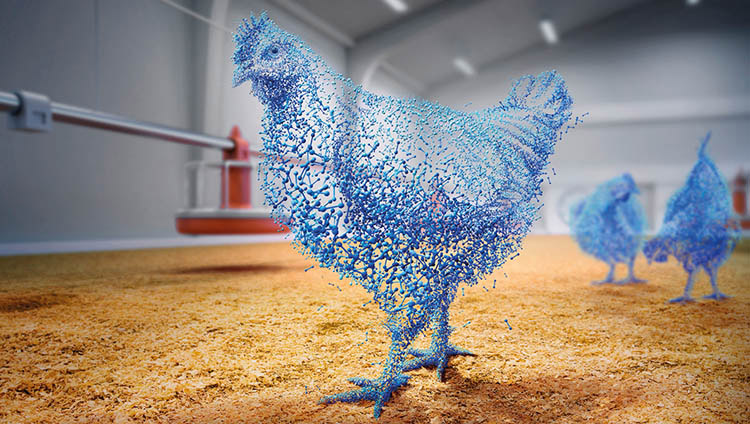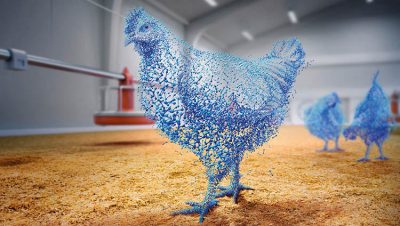‘Superdosing’, the practice of using high doses of phytase to target phytate destruction, can serve to recover broiler performance losses associated with reductions in dietary digestible amino acid (dAA) densities. This was the finding of a new research study from Texas A&M University and AB Vista.
The study investigated impact on body weight, breast meat yield and feed conversion ratio (FCR) in male Cobb broilers across 44 days. Dr Craig Wyatt, North America Technical Manager from AB Vista explains the rationale behind the experiment:
“In an increasingly challenging environment, producers and nutritionists are looking to maximise returns – but any financial gains must naturally be balanced against related performance losses. Reducing dAA density in diets can lower costs – but with this comes losses in yield and body weight.
“We formulated this study in order to help establish whether adding superdoses of phytase could help reduce diet cost – thus enabling producers to reduce digestible amino acid density without impacting key performance markers.”
The experimental design involved three levels of AB Vista’s Quantum Blue phytase (500, 1,500, and 3,000 FTU/kg) and three dietary dAA densities: a control at 100% of breeder-recommended levels, and isocaloric diets at 95% and 90% of control levels respectively.
Results confirmed that lower dAA levels resulted in poorer performance, with the two reduced-density diets yielding a 3.1 point FCR increase, and reductions of 78g and 27g across body and breast weight respectively.
In contrast, increasing phytase was shown to improve performance: the higher levels of phytase increased body weight at day 18; however, 3,000 FTU/kg was needed to deliver a significant increase on day 44.
Similarly, both higher levels of phytase improved FCR in the starter phase; however, 3,000 FTU/kg was needed to decrease FCR in later phases and from day 1 to 44. In the case of breast yield, 1,500 FTU/kg was sufficient to increase yield, compared to the 500 FTU/kg.
Dr Wyatt concludes:
“The demonstrated link between higher inclusions of phytase and performance improvements in reduced dAA density diets is encouraging for anyone concerned about the impact of restricted dAA levels. We plan to conduct additional studies to investigate specific modes of action, as well as to further explore the interaction between phytase and dAAs.”
More information on the study, and a link to the full paper, can be found at https://bit.ly/2ADdfjk.
For more information, contact AB Vista on +44(0)1672 517 650 or info@abvista.com. Follow AB Vista on Twitter: @ABVista.
ends
Notes to editor:
AB Vista is an animal nutrition technology company offering pioneering products and technical services to the global animal feed industry. Since its establishment in 2004, AB Vista has grown to be a top-three player in feed enzymes and is also one of the largest suppliers of natural betaine to the global animal nutrition industry. The company invests heavily in research and development and has a growing portfolio of products and services spanning the poultry, swine, ruminant and aquaculture sectors. AB Vista is headquartered in the UK, with regional offices located in the USA, Brazil, Singapore, Spain, India, China, Germany and Finland.
AB Vista is part of AB Agri, the agricultural division of Associated British Foods, one of Europe’s largest food & retail companies with a market capitalisation of £22 billion.
For further press information please contact Sonya Hayden on +44 (0)20 8647 4467 or sonya.hayden@garnettkeeler.com.
ABV/507/19






